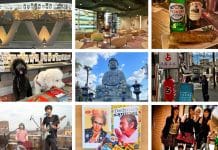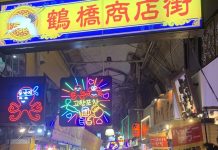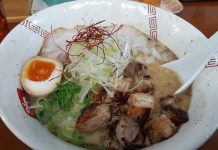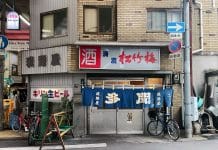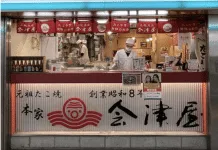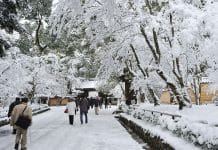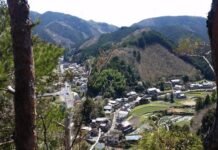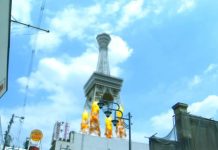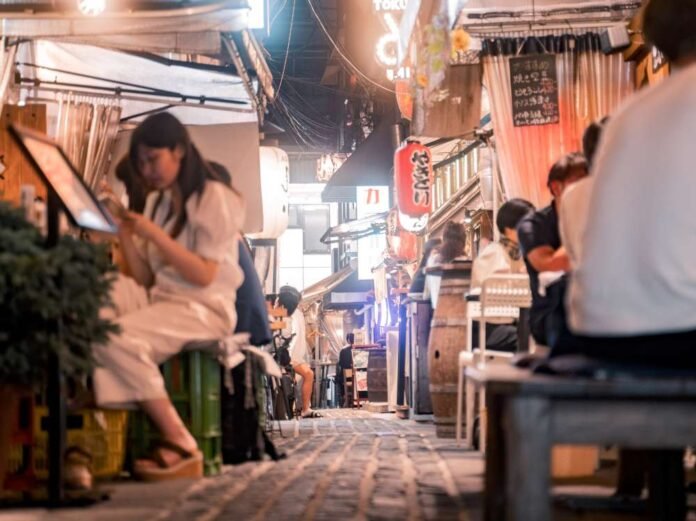
Table of Contents
Osaka, is it worth your time?
Let’s say you plan a visit to Japan, what are the first things that cross your mind? Authentic Japanese food like sushi and tempura, beautiful view of cherry blossoms over Mt. Fuji, and state-of-the-art technology. You would probably plan going to Tokyo as your first and main destination as it is the capital of Japan. In Tokyo, you would expect to experience the overcrowded commuters’ train, eat fresh sushi and the finest Japanese cuisine while exploring the anime and manga subculture. Then you would take a Shinkansen bullet train to Kyoto and visit a-thousand-year-old temples and enjoy the old town vibe while appreciating the beautiful landscaping and architecture. Afterwards, you will find an area called Osaka on the map near Kyoto. As you proceed with your research on Osaka, you will find Osaka has a castle and is a food town. After having done your research on Tokyo and Kyoto, Osaka may not seem very attractive to your eyes. You might wonder, “Hmm, what is there to do in Osaka? Is it worth visiting? If so, a day should be enough.”
There is one thing that keeps attracting people to Osaka and cannot be found in other cities in Japan: Its people. They are so unique and different from those in other parts of Japan. They are what makes Osaka so attractive and worth visiting. After experiencing regular touristy things in Tokyo and Kyoto, why not dig deeper?
Briefly about Osaka’s history
Osaka, located in the central part of Japan, is the third largest city right after Yokohama. A few hundred years ago, having Kyoto, the old capital, as its neighbor and being near the bay rich in seafood, Osaka had developed as a major logistic site, known as the nation’s kitchen. Due to its geographical advantage of having rivers going through the city to the then-capital, Kyoto, warehouses were organized along the major rivers to store goods (such as rice, marine and agricultural products) brought in from all over the country. It had become a vibrant place where people and goods were gathered. As in all ancient cities, where there were goods and people, commerce and trade would thrive.
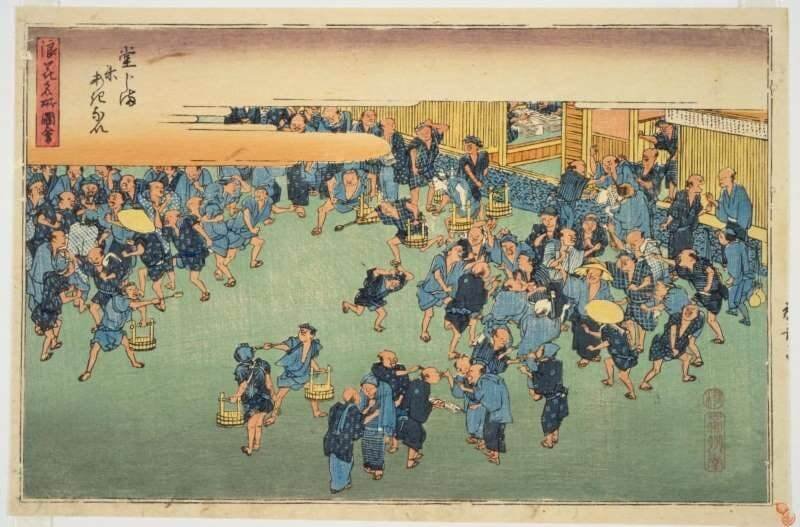
During that time, restaurants and shops were founded around the commerce center, and many locals of Osaka made their living as merchants. The merchants in Osaka had learned to bargain with tourists and other locals and polished their communication skills through business. In addition, there is a strong comedy culture in Osaka, which is rooted from the merchant culture as shop owners made jokes to attract customers. With that background, Osaka had become known as a town of merchants. Since such merchants were easy-going, friendly, and funny, soon they were perceived as the characteristics of Osaka people, Osaka-jin. Osaka-jin has distinguished characteristics that are far from the stereotype of Japanese that you often hear.
What is Osaka-jin and who they are?
Osaka-jins are the people who were born and raised in Osaka city or in the Osaka prefecture. It includes those who have lived in Osaka long enough to know its accent, culture, and people. A similar term Kansai-jin is sometimes used to indicate Osaka-jin. But Kansai-jin has a broader sense and is specifically used to describe the people in the Kansai area including Osaka, Kyoto, Nara, and three other prefectures. For people who are not from the Kansai area, the difference between Kansai-jin and Osaka-jin is like saying “potayto” or “potahto” . However, there is a significant difference between these two groups of people, especially their characteristics. For example, Kyoto people would get upset if they were categorized as Osaka-jin.
What are the stereotypes of Japanese you can think of? Shy, quiet, polite, and hard-working are most common. You will find that these stereotypes are justified when you spend a few days in Tokyo. If you talk to Tokyo locals, they usually keep their distance and keep to themselves…”Do not make mistakes”. Don’t get me wrong, Tokyo is also a friendly city. They have good manners and are always willing to help you. However, you may feel something is different once you set foot in Osaka.
Forget about the tranquility found in the old capital of Kyoto and quietness on the train and sophistication felt in Tokyo. You will feel energy and vigorousness coming from local Osaka merchants in Kuromon Market, vitality and power striking from the explosion of neon lights and giant 3D store signs in a busy street of Dotonbori.
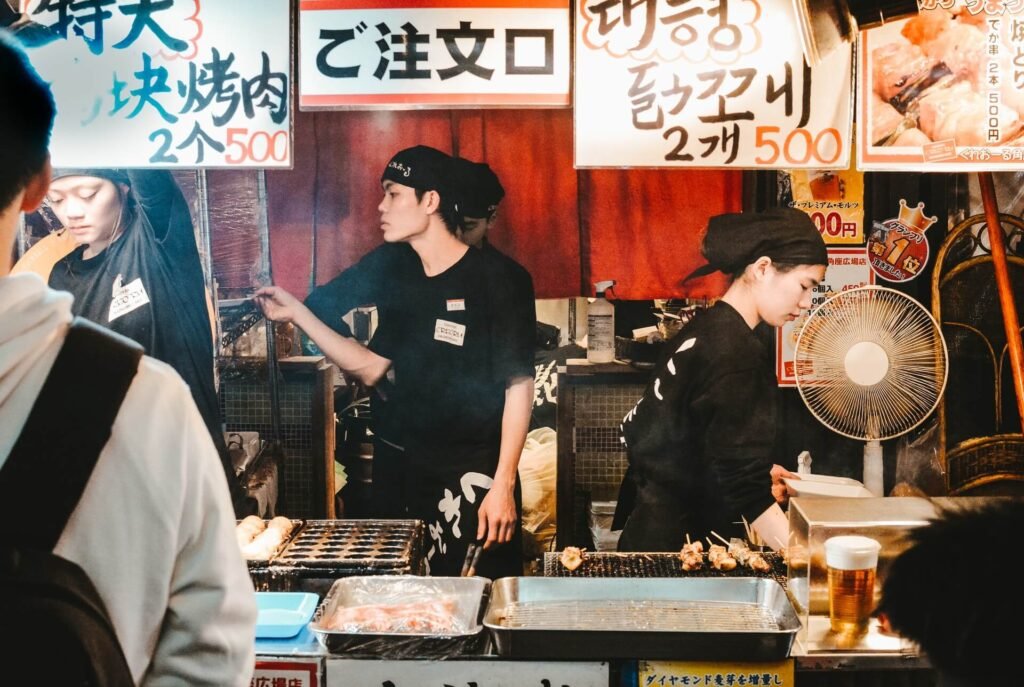
Oaka-jin is best described as warm, friendly, funny, and chatty. We are more laidback. Being quiet and shy is not in their dictionary. It is believed that having been the trading and commercial center of the country filled with merchants must have had an influence on forming the characteristics of Osaka-jin. Osaka-jins are not hesitant to talk to strangers. You will see a lot of Osaka-jins having small talks and making jokes with total strangers
How friendly they can get?
On a typical night in Osaka, I was with my guests from overseas as their tour guide at a small local bar. An Osaka local who was standing right next to us asked them where they were from. As soon as she heard that some of them were from the U.S., she shouted “U.S.A! U.S.A!” with her fist holding up in the air. Then, out of nowhere, she started to sing a song, a very popular pop song in Japan at that time, with a famous “The Shoot” dance move. The song goes “C’mon baby America…” Everyone at the bar started joining her by singing and dancing. They rather forcibly taught my guests the dance moves. Soon after, with the help of a couple of beers and sake, everyone in the bar was singing “C’mon baby America” and doing the Shoot.
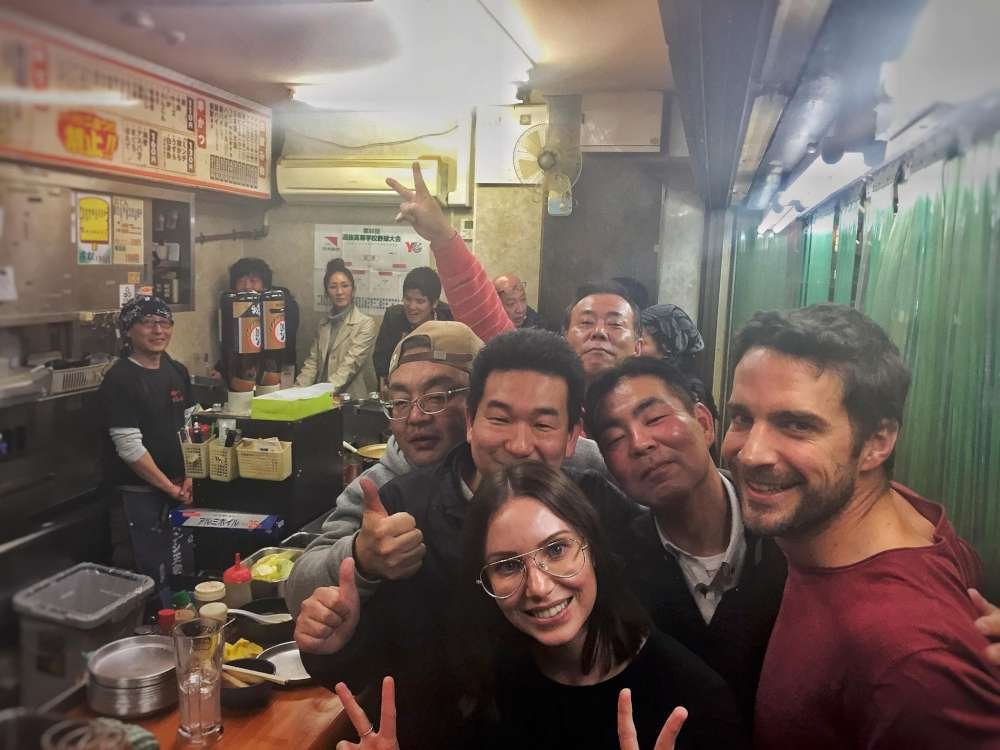
How to meet and interact with Osaka-jin?
If you are not familiar with the culture and people or do not speak the language, it is usually hard to interact with locals. Because of the cultural and language barrier or a lack of knowledge, some may feel intimidated or shy, and others think it may be rude. But please relax, it is not rude at all to talk to locals.
Take a day off from busy touristy areas and explore the hidden gems. You will find a lot of shops, bars, and restaurants where locals go to. You might feel intimidated to enter these places, but be brave for a bit. Because these are the places where you can meet locals. When you enter a shop, they may look at you because it is obvious you do not look like a local. However, as mentioned, most Osaka locals are friendly and welcome a friendly chat. So start a conversation with a friendly greeting. There are some basic and useful phrases you should know.
Let’s learn some common phrases…
Konnichiwa: Let’s say you visit a local shop to buy a Made-In-Japan craftsmanship knife. Instead of just going inside of the shop without saying anything and start browsing, try saying “konnichiwa” during daytime and “konbanwa” at night. Many Japanese feel glad and respected to hear Japanese words coming from your mouth. It shows you are trying to learn and understand our country and culture.
Kanpai: If you are a bit braver and take it to the next level, try a bar or izakaya. You will see many “salary-men” (business men) after work. If it is a local small bar, people will look at you as you enter and order. A lot of them are curious about you being in their hangout, but do not have the courage to talk to you. In that case, raise your glass and say “kanpai,” cheers, to the person sitting/standing next to you. What most likely happens is that he/she will say kanpai back to you and start asking you questions. The drunker they are, the friendlier they become. Soon other people would join the conversation, and you will find yourself drinking with your buddies of the night.
Nandeyanen: People in Osaka love to exaggerate and make jokes. For example, after having a glass of beer that is worth 500 yen at a local izakaya, the owner might say, “That will be 5 million yen.” In this case, you say “Nandeyanen!,” meaning you’ve got to be kidding. This phrase is often used in the Kansai area on a daily basis from young to old. When you hear Osaka locals making jokes, which happens so often, try to say “nandeyanen.”
Hona: You enjoyed drinking with your new friends of Osaka locals, and it is time for you to say good-bye to them. Instead of using “bye,” try the Osaka local way, “hona.” It means bye and is used widely in the Kansai region. They would be surprised to hear the word from you.
If you’re interested in Osaka’s dialect and local lingo, make sure you check out our article on “Osaka Ben” phrases HERE.
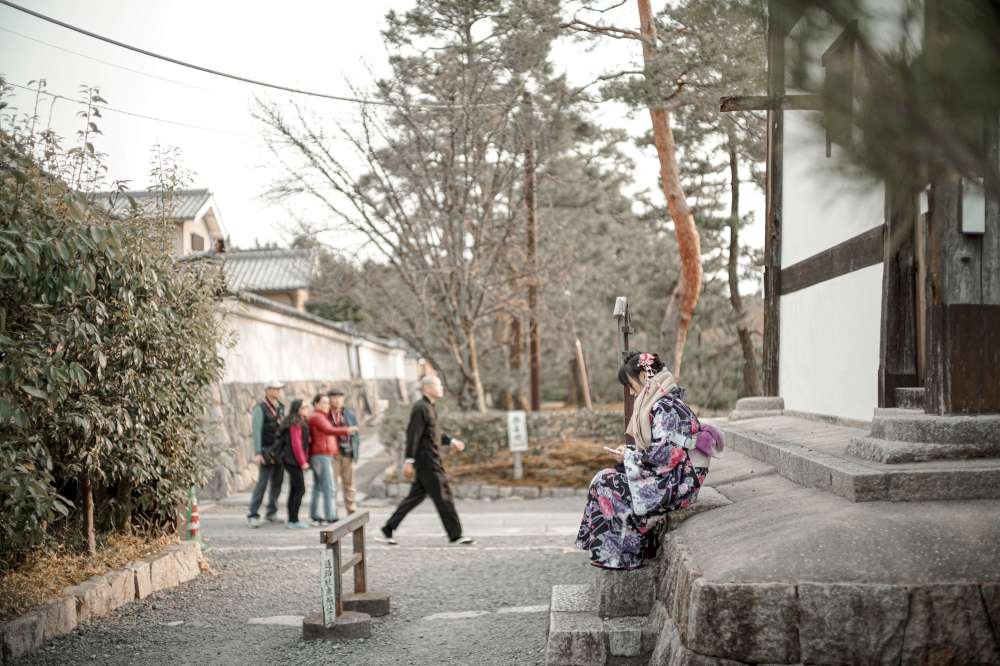
Friendly behavior
Some Osaka-jin can be overly friendly and become touchy-feely. For example, if you have a built body, they touch your arms or chest. If you have blonde hair, some like to stroke their fingers through your hair. They do not touch your body or hair because they have fetish or in a sexual manner. It is one of the ways of their communication. I have encountered such situations so many times when guiding my guests around Osaka. There were a few people who touched the rather big bellies of my guests and told them they had nice bellies.
They become more touchy-feely when they are drunk. They constantly hug you and shake your hands. If you have a bald head, they touch your head. That is because we make a joke about being bald in Osaka. So please do not get offended if you meet these over-friendly Osaka-jins. It is a sign that they like you and enjoy spending a moment with you.
Compared to Tokyo where you can find the latest fashion and robot restaurant or Kyoto where you feel tranquility in the bamboo forest while listening to the sound of the bell from a temple, Osaka may not seem that attractive to your eyes. However, there is a special thing that no other cities of Japan can offer, and that is Osaka locals. Once you get to know them, you will fall in love with the city.
Wrap up
Many Osaka locals I have met told my guests that what is important is to have a fun time together and that the nationality does not matter. They appreciate the time and opportunity to be able to have a good time with people even though they are total strangers from another country. That is something you cannot learn from a Lonely Planet book. There is still a language barrier and cultural difference. However, you might be able to have an unforgettable experience in a foreign city if you push yourself one more step forward.



